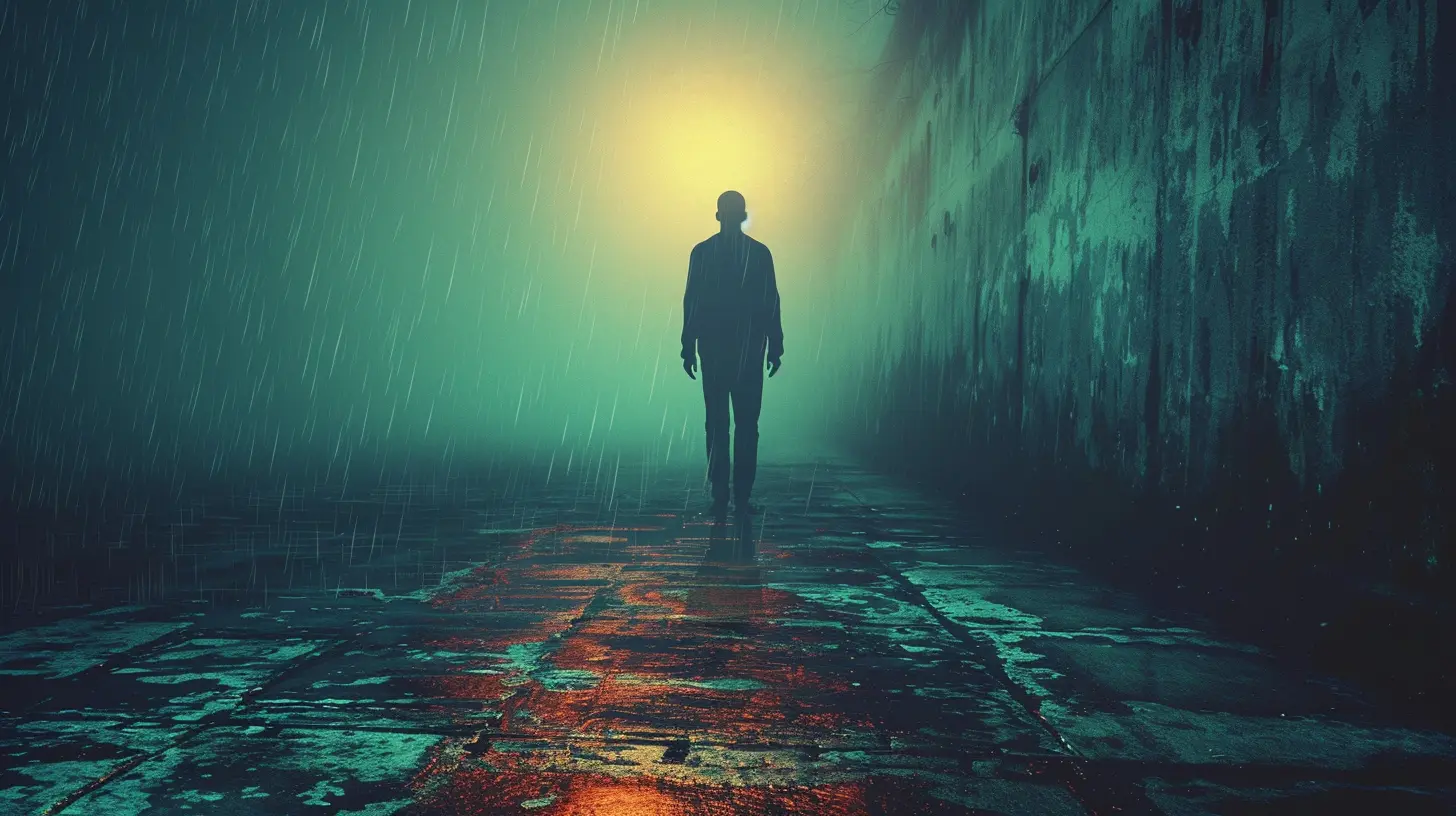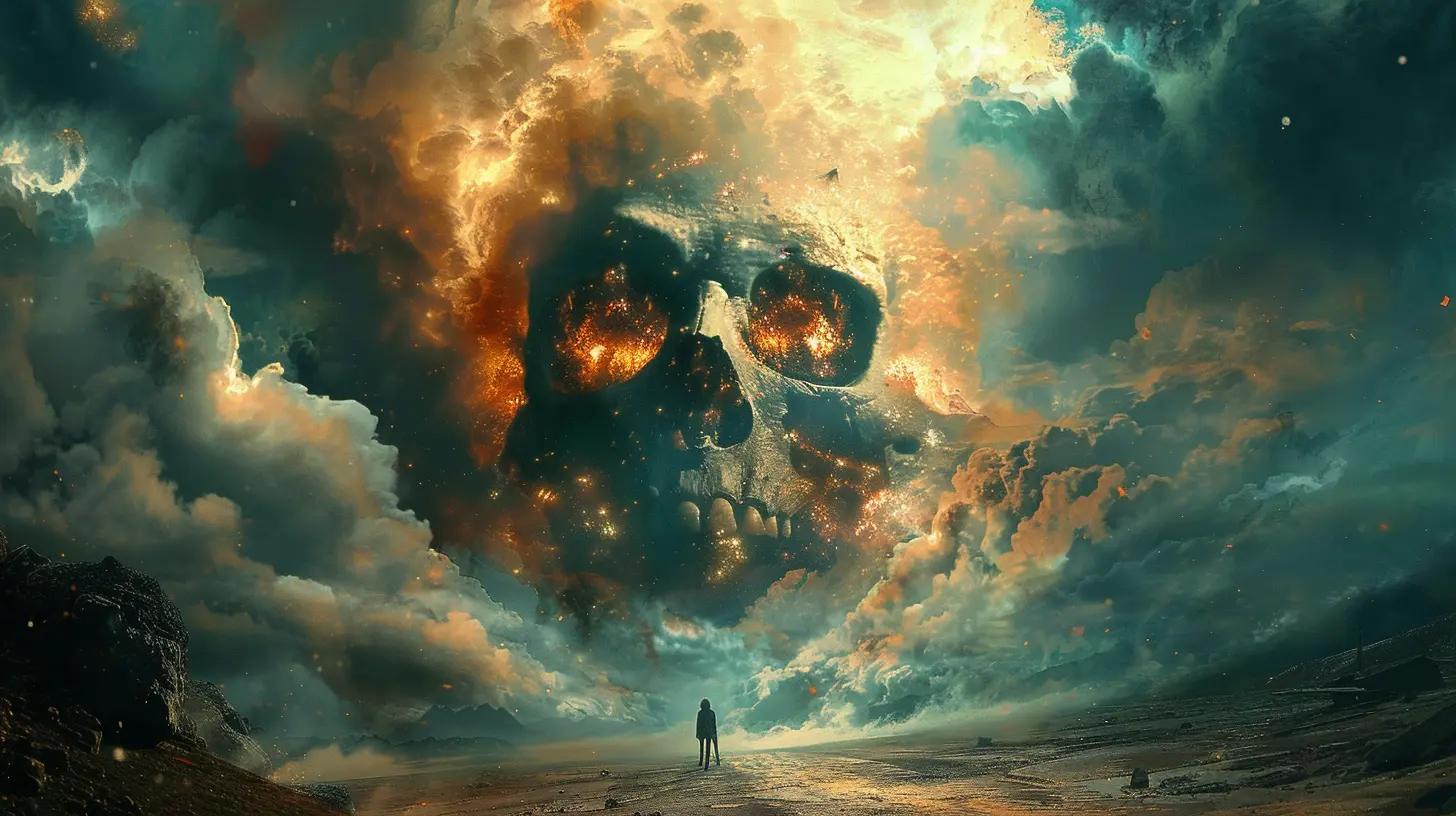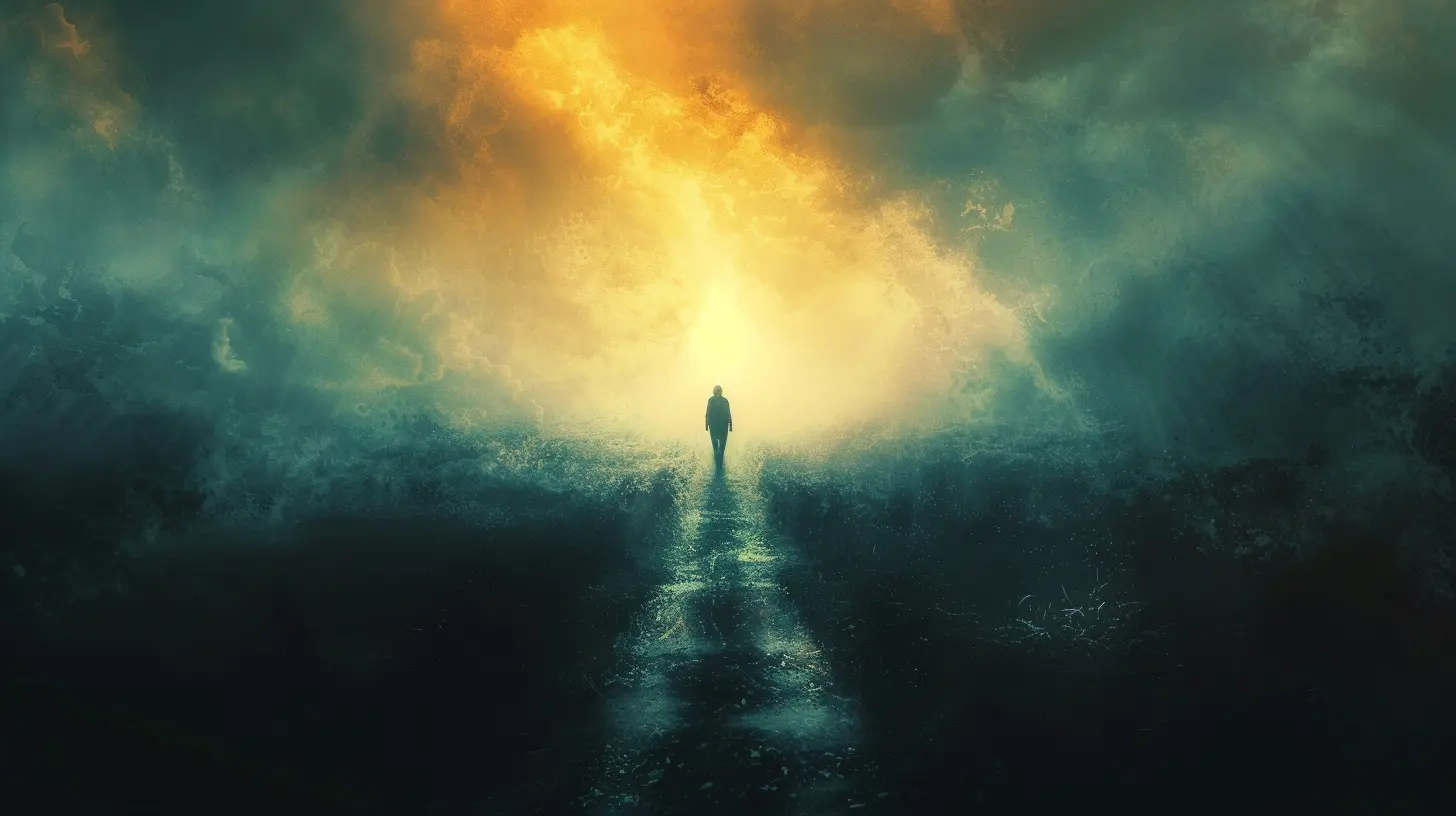Confronting the Fear of Death: A Psychological Exploration
1 August 2025
Death. Just reading that word might make your heart skip a beat. It's the ultimate unknown, the one certainty in life that we often pretend doesn’t exist—until we can’t anymore. The fear of death, also known as thanatophobia, is something that affects everyone at some point. Some brush it off, while others find themselves deeply troubled by it.
But why are we so afraid of death? Is it the pain, the mystery, or the idea of simply… ceasing to be? And more importantly, can we actually do something about this fear? Let’s dive into the psychological depths of death anxiety and find ways to confront it head-on.

The Roots of Death Anxiety
Our fear of death isn't just some random feeling—it’s wired into us. From an evolutionary perspective, it makes sense. If our ancestors weren’t afraid of death, they wouldn’t have been as cautious, and let’s be real, they probably wouldn’t have survived long enough to pass on their genes.But in today’s world, we’re not running from saber-toothed tigers anymore. So why does the fear still grip us?
1. The Unknown Factor
What happens after we die? Nobody knows for sure. Some believe in an afterlife, some in reincarnation, and others think it’s just eternal nothingness. The uncertainty is enough to make anyone’s brain go into overdrive.2. Loss of Control
We like to be in control—of our schedules, our choices, and our lives. Death? That’s one thing we can’t fully control. It reminds us that no matter how much we plan or prepare, there’s an end waiting for us, and we don't get to decide when or how.3. Fear of Non-Existence
This one’s heavy. Thinking about a time when you just…won't exist? It’s unsettling, to say the least. It’s hard to imagine a world continuing without us in it.4. Pain and Suffering
Many people aren’t just afraid of dying; they’re afraid of how they’ll die. Will it be painful? Slow? Unexpected? The media bombards us with tragic stories, reinforcing the fear that death isn’t just the end—it might be an agonizing journey to get there.
How Death Anxiety Manifests
Thanatophobia doesn’t always look like someone openly panicking about dying. It can show up in sneaky ways, like:- Health anxiety: Constantly worrying about illnesses and symptoms, fearing they might be fatal.
- Avoidance behaviors: Steering clear of hospitals, funerals, or even discussions about death.
- Existential anxiety: Questioning the meaning of life and feeling overwhelmed by the fleeting nature of existence.
- Panic attacks: Some people experience intense fear episodes when confronted with thoughts of death.

Psychological Theories on the Fear of Death
Psychologists and philosophers have been tackling this topic for centuries. Here are some interesting perspectives:1. Terror Management Theory (TMT)
This theory suggests that much of human behavior is driven by our awareness of death. To cope, we create cultural beliefs and worldviews—like religion, legacy, or meaningful achievements—that give life a sense of purpose and help push thoughts of death to the background.2. Existential Psychology
Existentialists believe that embracing death is the key to truly living. Instead of fearing it, they argue that accepting mortality can help us make the most of our time and live more authentic lives.3. Freud’s Perspective
Sigmund Freud had an interesting take—he believed that deep down, we don’t actually fear death. Instead, our ego can’t comprehend non-existence, so it projects that fear onto symbols of death, like dark places or ghosts.
Coping Mechanisms: How to Deal with the Fear of Death
So, how do we stop death anxiety from consuming us? Here are some strategies that can help:1. Talk About It
Death is often a taboo topic, but avoiding it only fuels the fear. Talking about it with a therapist, a friend, or even reading about it can help normalize the concept and make it less intimidating.2. Mindfulness and Meditation
Living in the present moment reduces anxiety about the future. Meditation, especially mindfulness meditation, teaches us to accept things we can’t control—including death.3. Finding Meaning
Rather than focusing on how life ends, focus on how you're living. Whether it’s through relationships, hobbies, helping others, or creating something lasting, finding purpose can shift the focus from fear to fulfillment.4. Exposure Therapy
It might seem counterintuitive, but facing the fear rather than running from it can be liberating. Reading about death, attending funerals, or even volunteering in hospice care can help desensitize the fear.5. Writing a "Death Plan"
This might sound a bit morbid, but planning for death—like writing a will, organizing assets, and expressing end-of-life wishes—can give a sense of control and reduce anxiety.6. Considering Spiritual or Philosophical Views
Many people find comfort in spiritual beliefs, whether it’s religious faith, the idea of reincarnation, or even just the belief that their impact will live on in some way. Even if you're not religious, exploring different perspectives might ease the anxiety.Turning Fear into Motivation
Fear doesn’t have to be a bad thing—it can be a fuel for action. Think about it: if life is short, doesn’t that make every moment more valuable? Instead of dreading the end, use that awareness as a reason to truly live.- Take risks.
- Tell people you love them.
- Chase your dreams.
- Stop sweating the small stuff.
The fear of death is real, but it shouldn't paralyze us. Instead, it should serve as a reminder that life is precious—and that every second counts.
Final Thoughts
The fear of death is natural, but it doesn’t have to dominate your life. By understanding why we fear it, acknowledging that fear, and finding ways to manage it, we can move from dreading death to appreciating life.So next time the anxiety creeps in, take a deep breath and remind yourself: death is an unavoidable part of being alive. And instead of fearing it, maybe—just maybe—we can learn to make peace with it.
all images in this post were generated using AI tools
Category:
Psychology Of FearAuthor:

Nina Reilly
Discussion
rate this article
1 comments
Max McTigue
Insightful and thought-provoking read!
August 12, 2025 at 2:17 AM

Nina Reilly
Thank you! I'm glad you found it insightful.


